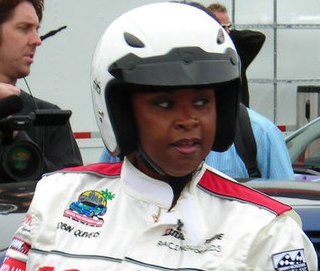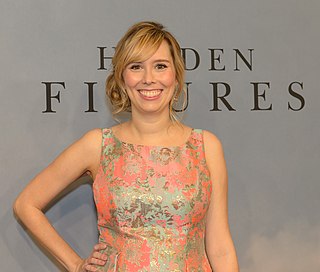A Quote by Geena Davis
The big takeaway I got from 'Thelma & Louise' was the reaction of women who had seen the movie being so profound, so different. It was overwhelming, and it made me realise how few opportunities we give women to feel excited and empowered by female characters, to come out of a movie pumped.
Related Quotes
Sometimes you feel all alone. You come out of a meeting, and something sexist has been said to you: That movie will never be made with that female lead. And you think, 'How am I ever gonna get another job?' When you hear other women having the same experiences, it makes you feel like, 'Well, I'm gonna keep going, and we're gonna fight this system.'
My whole theory about why I couldn’t find any creators who realized they were leaving out female characters is because they were raised on the same ratio. I just heard someone the other day call it either ‘smurfing’ a movie, which is when there’s one female character, or ‘minioning’ a movie, which is when there’s no female characters.
You can't do a movie without villains. You have to have something for the heroines or anti-heroines to be up against, and I wasn't going to contrive some monstrous female, but even if this were the most men-bashing movie ever made-let all us women get guns and kill men-it wouldn't even begin to make up for the 99% of all movies where the women are there to be caricatured as bimbos or to be skinned and decapitated. If men feel uncomfortable in the audience it is because they are identifying with the wrong character.
There's more empathetic representations than we're used to seeing. I honestly feel like in the early days of Hollywood, women did have those. Women had very traditional roles in society of wife and mother, but when they went to the movies, they got to see women be, like, really cool, amazing characters and femme fatales and all of this. And then there was just this systemic reaction where it was all about, "How do we make money?" And everybody wants to sell things to boys. And then women's entertainment became devalued in a way that I think is disrespectful and hurtful.
I don't know if you've ever seen some of the Sidney Lumet movies, like Dog Day Afternoon [1975] or Network [1976]. They're real events that happen in real time, and there are all of these different characters experiencing the same thing in different parts of the movie ... I am so bad at explaining my films. But it's in the world of finance and the world of media, and how they connect. It was a big undertaking. A big, mainstream movie, which stars Julia Roberts and George Clooney. But for me, it's really just a small story about character and people.
































